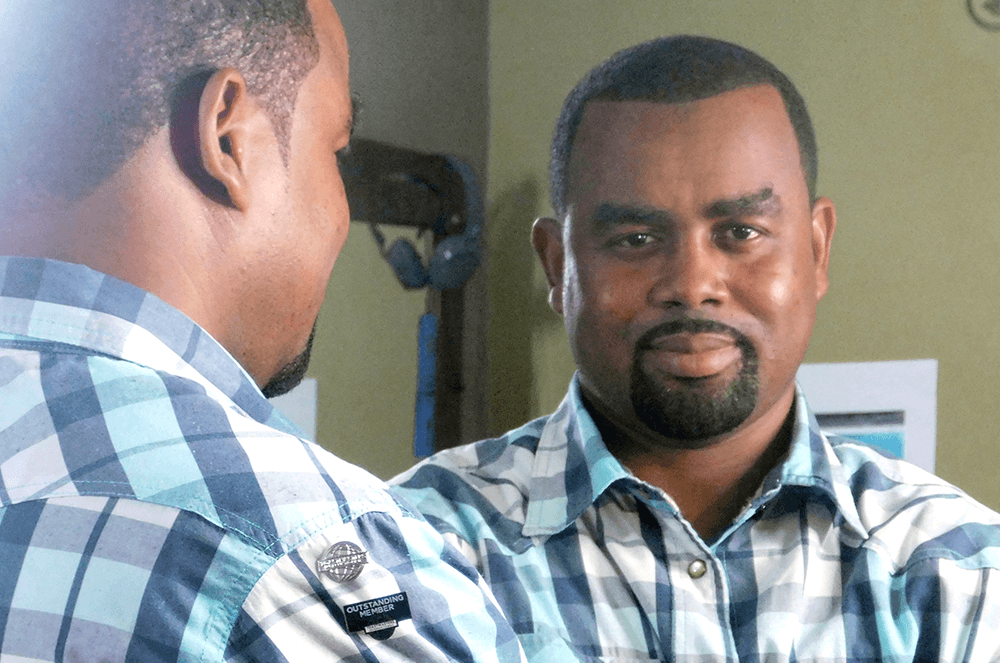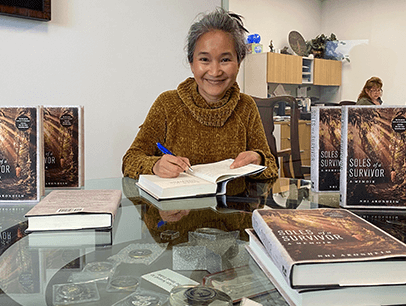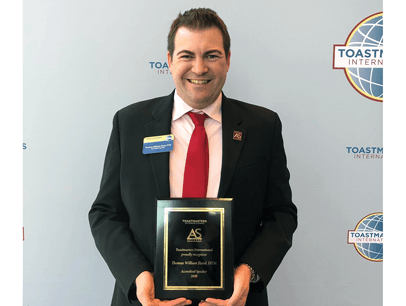
I have always been known for one defining characteristic: I like swimming in uncharted waters. In Toastmasters, this means I frequently select Pathways learning experience elective projects that require skills I do not yet have.
But there was one thing that always sent chills up my spine—Table Topics®. To be fair, my fear was warranted. I remember my very first Table Topics experience like it was yesterday. My hands were sweating, my heart was racing. And my mind was completely blank. Somehow, I had managed to condense what should have been a two-minute impromptu speech into a 10-second sentence. I helplessly splashed around in my pool of scattered thoughts and rambling words.
From that day on, I invested a significant amount of energy into ensuring I looked extremely busy during all Table Topics sessions and always took on critical meeting roles, like timer, to eliminate myself as a potential pick.
Years passed, and it became harder and harder to overcome this gargantuan feat. After I confessed my impromptu speaking fears in a club speech, a few audience members reached out privately and admitted they faced similar challenges. As an engineer and researcher, I was intrigued. I conducted an anonymous online survey with my club members to determine their overall confidence level speaking ad lib and doing Table Topics. To my surprise, the results revealed that there were several other Toastmasters who also had a desire to overcome their aversion to impromptu speaking. This inspired me to create the On-The-Spot (OTS) program.
On-The-Spot was focused on people with a desire to increase their confidence level in Table Topics and speaking off the cuff. These were members of my club and others I had reached out to from other clubs.
OTS included the following components:
- Workshop #1: A guest speaker (past Table Topics Contest champion), followed by a Q&A and practice session.
- Workshop #2: A closed-group practice session with just OTS members.
- Volunteering as Table Topics practicers at our home clubs and other clubs.
- A Table Topics Tournament.
The OTS group was updated on all speaking opportunities that surfaced for volunteering in Table Topics. The purpose of this aspect of our initiative was to jump in the deep end by accelerating our exposure to Table Topics and rapidly rid ourselves of the fear. With 16 group members, it was essential to include other willing clubs in the initiative—online meetings made this much easier than it would have been in pre-pandemic times. The group was frequently told which OTS members had presented at which clubs, all while making it clear that the outcome was never as important as the act of volunteering itself. Inevitably, as they improved, some OTS members were voted best speaker during the Table Topics sessions on their tours.
There was one thing that always sent chills up my spine—Table Topics.
The project culminated in January 2021 when On-The-Spot members participated in a Table Topics tournament. As usual, the two finalists were asked to provide their one- to two-minute speeches but instead of a typical question, they were to end their speeches with “and that’s why people dance.” The audience was thrilled by the blend of responses and interpretations by the two finalists. More importantly, there was an air of victory felt by all tournament participants.
And with that, as the sun set on our initiative, I could see that my fellow OTS members were all looking a little different than they did when they attended that first workshop. The researcher in me was hungry to qualify and quantify what that change really was! Imagine my joy when the after-program survey revealed their confidence in impromptu speaking had improved compared to their self-assessment that was done before the start of the OTS project.
The vision of On-The-Spot was achieved and exceeded. Today, not only are the group members still active, but other clubs have also launched their own versions of the program. I still have much to learn, but I did learn one big lesson: How to feel the fear and do it anyway.
Conrad Miller is a member of Dynamic Speakers in Jamaica, an engineering manager, and doctoral student. He created a mobile application called I.A.N (Interactive Audience Network), which assists with speech evaluations and gathering feedback.



 Previous
Previous

 Previous Article
Previous Article

